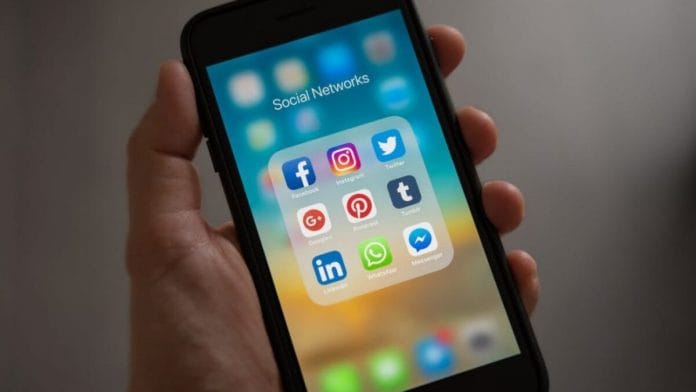New Delhi: Sixty seconds. That’s all the time a smartphone could take to make predictions about a person’s private information, including age range, gender, and which social media apps they use.
In what could be taken straight out of a dystopian sci-fi series, a research paper by titled “Information We Can Extract About a User From ‘One Minute Mobile Application Usage'” demonstrates the dangers of allowing mobile apps to access your smartphone’s inbuilt sensors.
The study, conducted by graduate researcher at Georgia State University in Atlanta, involved using machine learning (ML) algorithms on data from smartphone sensors and then making predictions about the users, thus highlighting the potential for “privacy breach”.
“My research shows that using only sensor data, we can predict a lot about a person without knowing any details about them. Which means that the privacy of people is not fully secure. So we need to be very careful while using apps that require sensor permissions in our smartphones,” Sarwan Ali, the author of the paper, told ThePrint.
A machine learning algorithm is a method that an artificial intelligence (AI) system uses to conduct its task, generally predicting output values from given input data. ML algorithms build a model based on sample data — known as training data — to make predictions or decisions without being programmed to do so.
In the study, ML algorithms used input from three sensors of an Android smartphone to accurately predict what type of social media app (out of four options — Facebook, Instagram, WhatsApp, and Twitter) the user was currently running, the person’s gender, age group, whether they were left or right handed, and whether females and males have “different behaviour patterns”.
The information thus gathered has many potential uses, such as enhancing user experience while designing any mobile application, “for getting likes/dislikes of people, for targeted advertisement, for fall detection (specifically for older people), and for securing the private information of the users based on the detected patterns from the sensor data”, the paper says.
Also Read: India is the sixth most data-breached country in world, says study by cybersecurity firm
How the study was conducted
The research focused on 29 subjects — 17 males and 12 females.
The first step was to design an Android mobile application that the subjects used to enter basic information like the social media application they want to use, their gender, age, and the hand in which they hold the smartphone. This data was then used to train the Machine Learning algorithms.
Then, the test subjects were asked to click the start button of the app and let it run in the background as they used the social media application of their choice for 60 seconds.
In those 60 seconds, the app designed for the study collected signals from three different sensors of the smartphone — the accelerometer, magnetometer, and gyroscope.
The accelerometer is typically used to sense motion, the direction of motion, and the speed of the phone — and thereby the user’s.
A gyroscope is used to understand the orientation of the phone, such as whether it’s tilted. A magnetometer helps point out which way is north.
The raw data collected by the three sensors was then run through the algorithm.
Ali clarified that the data used to train the algorithm was completely different from the raw data collected from the sensors.
The results of the study showed that the algorithm could independently predict a subject’s gender with over 98 per cent accuracy, their age group with over 92 per cent accuracy, what social media app was used with over 52 per cent accuracy, and whether the person used their left or right hand with over 43 per cent accuracy, the paper said.
“Using this correlation-based analysis, we can predict some missing attributes about [the] user, which were not known to the ML models initially,” the paper says, adding that its findings show there “could be a potential privacy concern because of which, authorities need to take more steps to ensure the privacy of people’s data”.
(Edited by Uttara Ramaswamy)
Also Read: Unacademy, Byju’s help clear your doubts, but have few answers on data privacy






